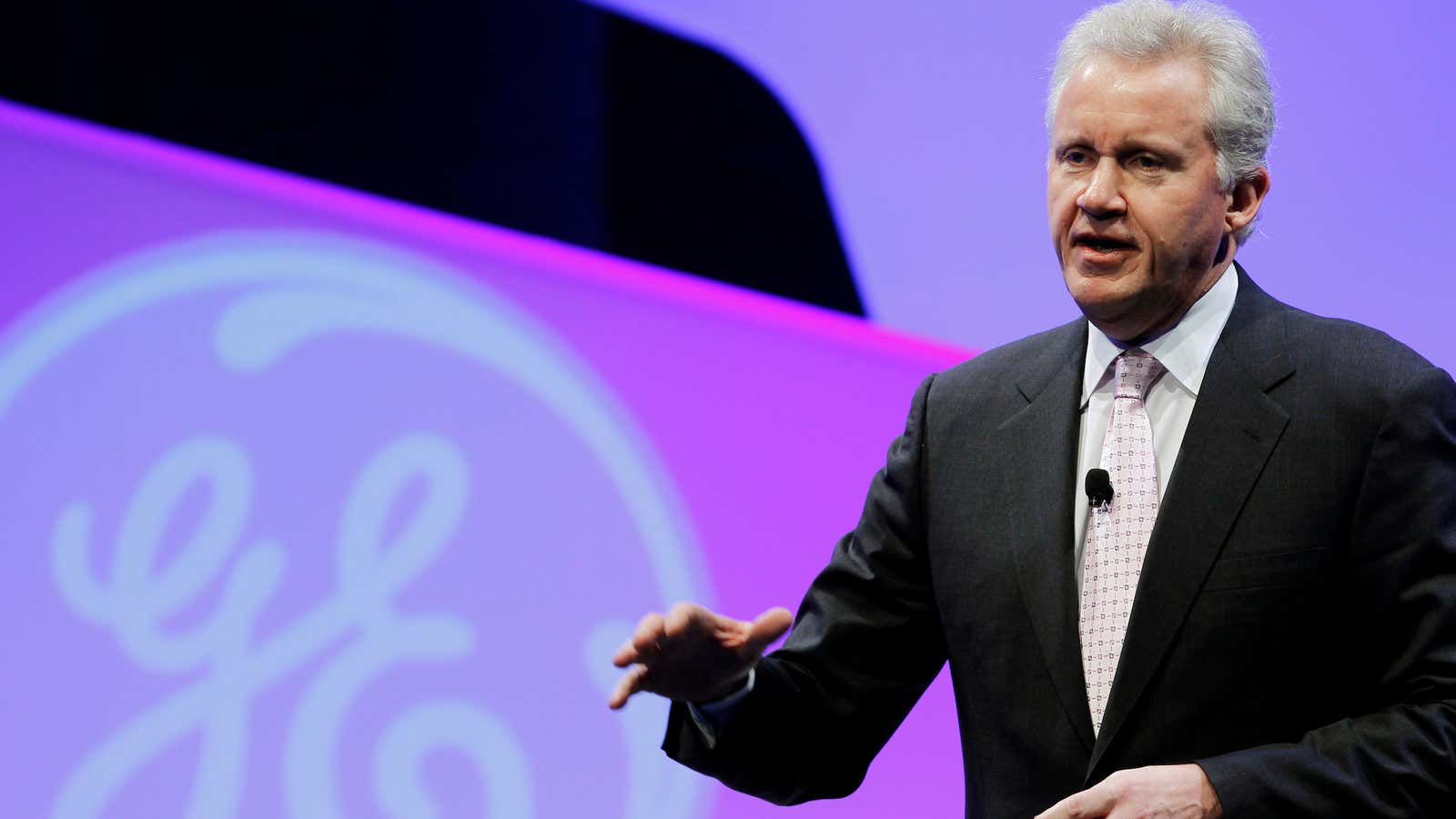The term “activist investor” usually summons the image of someone who buys huge stakes in a firm and demands the heads of current management on a plate. But Nelson Peltz’s $2.5 billion investment in General Electric is not that.
The investment, which was made through his Trian Fund, netted 1% of the company and makes him one of the top 10 largest shareholder. In the past Peltz has engaged in boardroom brawls with other giant companies in an attempt to push big changes, but this time he has a series of fairly gentle suggestions. Revealed in an 88-page white paper (pdf), they focus on buybacks, debt, and M&A—all of which, GE mostly agrees with. The fund believes the stock is substantially undervalued, and could reach $40-$45 by 2017. It’s the firm’s largest investment.
The news has been well received: Shares are up nearly 4% this morning after the announcement. But the investment certainly ratchets up the pressure on Jeff Immelt, who has been GE’s CEO since 2001, to deliver on a turnaround that’s been years in the making.
The investment came about in part because Peltz approves of Immelt’s most aggressive move, the dismantling of the company’s GE Capital financing arm, a longtime cash cow that became a serious weight on the company during the financial crisis. Peltz said he had shied away from the stock in the past because GE Capital was such a large and worrisome part of the business.
“In short, prior to GE’s ‘pivot,’ its great businesses were overwhelmed by the bad ones and the underlying defensive growth of GE’s core industrial businesses was obfuscated,” Trian analysts wrote in the presentation.
It’s a vote of confidence in a new GE that’s stepping away from the harsher management ethos of former CEO Jack Welch, and is considerably smaller. Immelt has sold off huge hunks (65%!) of the company in order to focus on higher margin industrial businesses.
Peltz, of course, has some additional ideas. In classic activist investor fashion, he wants the company to borrow $20 billion to buy back shares.
“There is an opportunity to return 40% of the market cap to shareholders by the end of 2018,” the presentation claims.
GE is on board for the buybacks, according to the Wall Street Journal (paywall), but may differ on the debt piece.
Peltz wants GE to continue to substantially reduce costs and grow margins, and for the company to get more disciplined about mergers and acquisitions by adding specific requirements for internal rate of return, and how soon new businesses will add to earnings.
It’s an amicable situation for now, but the money adds some urgency to GE’s plan. If things don’t progress as quickly or in the manner Peltz expects, the investment might become more active.
